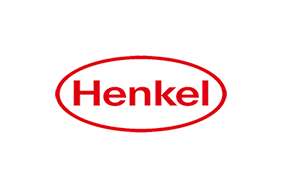Corporate 100 Percent Renewable Energy Goals: From Ambition to Implementation
Words by Mary Riddle
Published 09-13-23
Submitted by Henkel

Originally Published by TriplePundit
Companies around the world are looking to meet 100 percent of their energy needs with renewable sources in order to reduce greenhouse gas emissions in the fight against climate change. But what are the next steps once the commitments are down on paper, and how do companies move from good intentions to implementation of their renewable energy goals?
Henkel, which owns well-known consumer and industrial brands including Dial personal care products, All laundry care, Schwarzkopf hair products, Loctite adhesives and more, is making progress on its own target, and can serve as an example to other companies looking to bridge the gap between ambition and action.
Renewable energy and corporate decarbonization: How the real work happens.
Henkel aims to source 100 percent of purchased electricity from renewables by 2030 and is well on its way to meeting that goal. Dirk Ullrich, senior global expert on climate change for Henkel, is one of the many employees responsible for ensuring operational sustainability at the company’s 166 global production sites. “We have an ambition to be climate-positive in our operations by 2030,” Ullrich said. “We are confident that we will outpace our target, and parts of it early.”
“We have a strict hierarchy for our energy programs,” Ullrich continued. “First, we look into energy efficiency and renewable power generation on-site. We also look for regional energy sourcing solutions like virtual power purchase agreements, or direct energy contracts to create additionality in the markets.”
Virtual power purchase agreements (VPPAs) are long-term renewable energy contracts that feed power from specific renewable energy plants into the supply grid, in an amount that is equal to the amount consumed. Henkel is using an off-site VPPA with a wind farm in Bee County, Texas.
“Increasing Henkel’s investment in climate-positivity in our worldwide production is at the heart of our sustainability transformation, and we’re glad to be contributing to this important effort here in North America,” said Pernille Lind Olsen, president of Henkel North America, corporate senior vice president for adhesive technologies, packaging and consumer goods, and regional head of adhesive technologies in North America. “This VPPA agreement covers a capacity equivalent to 100 percent of the electricity demand for our operations in the U.S. That’s more than 30 production sites, which represents a significant reduction in our carbon footprint.”
The wind farm was developed by energy provider Ørsted and generates renewable energy that has fed into the public grid since June 2022. The entire wind park area is 15,000 acres and is expected to generate over 850 gigawatts of electricity on average each year. This equals the energy needed to power approximately 90,000 U.S. households.
“We’re pleased to work with Henkel to deliver renewable energy from Helena Wind Farm,” said Monica Testa, head of origination at Ørsted. “Henkel’s commitment to this project directly contributes to increasing renewable energy supply to the Texas electric grid and meeting our global decarbonization goals.”
A recent solar VPPA in Spain covers Henkel’s electricity demand of more than 40 sites in Europe, and the company is also investing in energy generation at its own production sites globally. In Australia, among other countries, two of Henkel’s factories installed rooftop solar panels. Together with the utilization of new energy-saving equipment and sourcing contracts for renewable energy, the plants have successfully transitioned to 100 percent renewable electricity usage.
Still, Ullrich noted that it is more difficult to source renewable energy in some countries than others, and this has been a challenge for the company in some places where it has operations.
Real action on renewables builds trust with stakeholders — and engages them as partners in the fight against climate change.
“Climate change is a global problem, but the solutions are local,” Ulrich said. Beyond decarbonizing its own operations, Henkel aims to provide consumers with as many opportunities as possible to lower their own household energy use. For example, the company has developed technologies for its laundry detergents that allow consumers to wash clothes at very low temperatures and with combined colors.
Henkel’s ambition has helped the company keep solid marks from climate rating agencies. “Henkel has been included in the CDP Supplier Engagement Leaders Board for 2022, belonging to the top 8 percent of companies assessed for supply chain engagement on climate change,” Ullrich said. “We take this seriously. We do not play the game to get the best possible score, but we work instead for the highest level of credibility.”
The bottom line: We all have a role to play in a low-carbon future.
For Ullrich, his work at Henkel is personal. “When it comes to a sustainable future, there is hope, but we have to act,” he said. “Individuals, communities, and corporations all have the opportunity to make meaningful changes that contribute to sustainability efforts. Current trends show that that within five to six years, we will likely use up the global 1.5-degree carbon budget, so by 2025, there will be no carbon budget left. The more we do today to act on this creates less of a burden for generations to come.”
Companies must act quickly to make that burden smaller, he continued. “I see a lot of targets, goals and pledges, but we need action.”
To move from target-setting to real impact, companies and other stakeholders must also recognize the nuance of the challenges they face and act accordingly. “Sustainability topics are linked and intertwined,” Ullrich said. "You can't discuss climate in a silo. Climate can only be tackled when you have a good understanding of other issues like water and the circular economy, because we need to think circularly to look into climate protection.”
This article series is sponsored by Henkel North America and produced by the TriplePundit editorial team.
Image courtesy of Henkel North America

Henkel
Henkel
About Henkel in North America
Henkel’s portfolio of well-known brands in North America includes Dial® soaps, Persil® and all® laundry detergents, Snuggle® fabric softeners, Schwarzkopf® hair care, as well as Loctite®, OSI®, Technomelt® and Bonderite® adhesives. With sales close to 6.6 billion US dollars (6 billion euros) in 2023, North America accounts for 28 percent of the company’s global sales. Henkel employs around 8,000 people across the U.S., Canada and Puerto Rico. For more information, please visit http://www.henkel-northamerica.com and on X (Twitter) @Henkel_NA.
About Henkel
With its brands, innovations and technologies, Henkel holds leading market positions worldwide in the industrial and consumer businesses. The business unit Adhesive Technologies is the global leader in the market for adhesives, sealants and functional coatings. With Consumer Brands, the company holds leading positions especially in laundry & home care and hair in many markets and categories around the world. The company's three strongest brands are Loctite, Persil and Schwarzkopf. In fiscal 2023, Henkel reported sales of more than 21.5 billion euros and adjusted operating profit of around 2.6 billion euros. Henkel’s preferred shares are listed in the German stock index DAX. Sustainability has a long tradition at Henkel, and the company has a clear sustainability strategy with specific targets. Henkel was founded in 1876 and today employs a diverse team of about 48,000 people worldwide – united by a strong corporate culture, shared values and a common purpose: "Pioneers at heart for the good of generations.” More information at www.henkel.com.
More from Henkel

